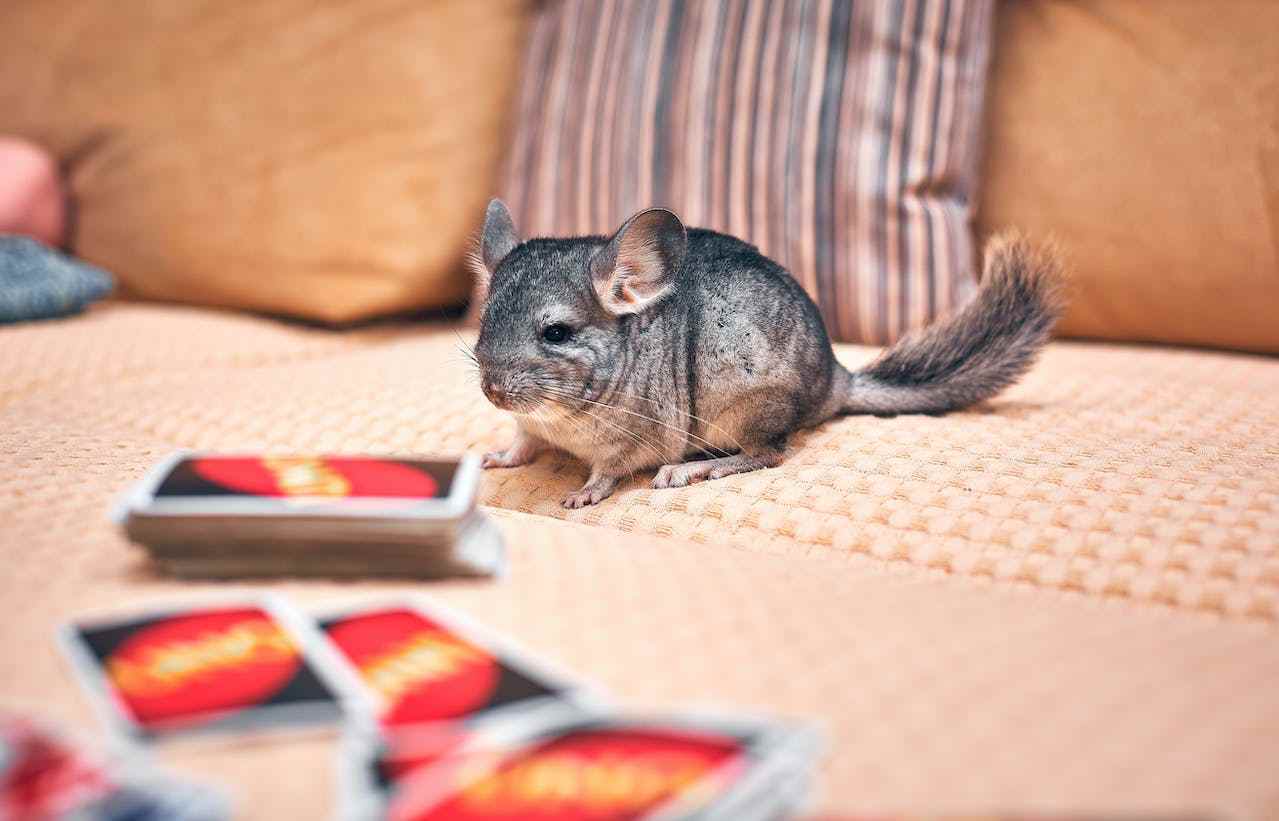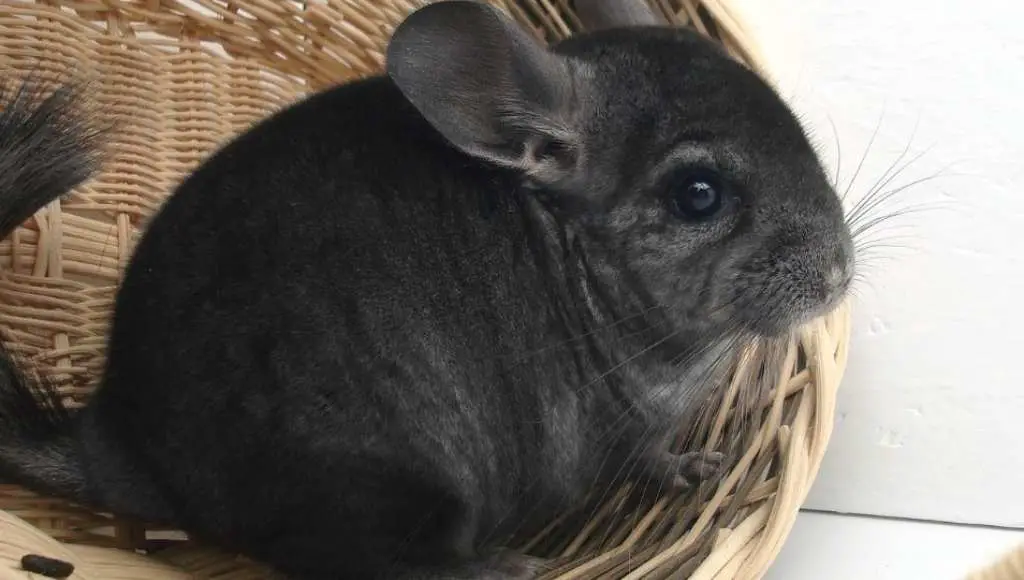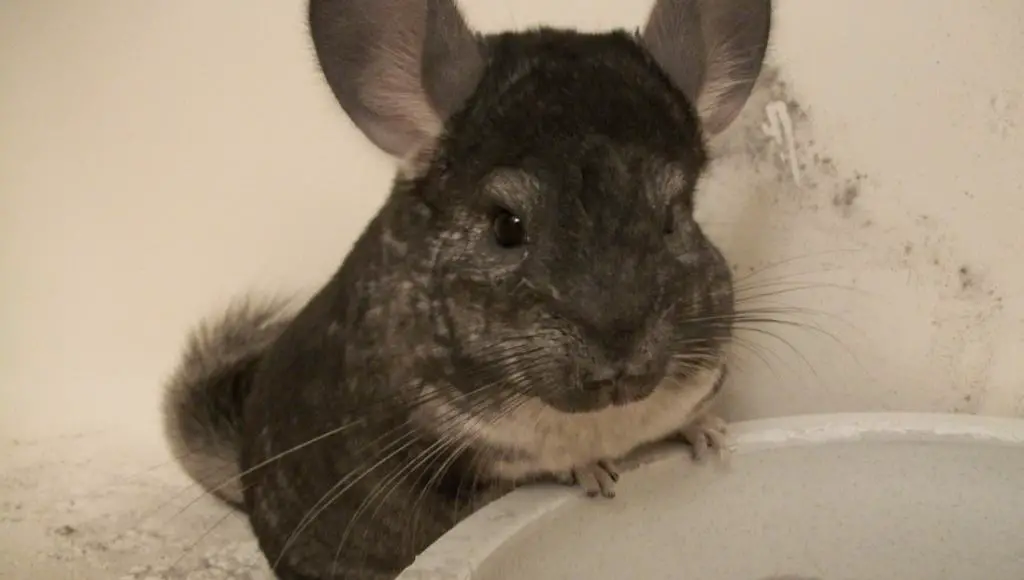12 Potential Chinchilla Stroke Symptoms

Today, let’s talk about something crucial: chinchilla stroke symptoms.
As responsible owners, it’s vital to recognize the signs that indicate your furry friend may be experiencing a stroke.
So, join me as we delve into the world of chinchillas and learn how to identify these symptoms in just some sentences!
Chinchilla Stroke Symptoms
Chinchilla stroke symptoms can include sudden loss of balance, difficulty walking or standing, unusual head tilting, a lack of coordination, circling, or even seizures.
If you notice any of these symptoms in your chinchilla, it’s important to seek veterinary care immediately to determine the underlying cause and provide appropriate treatment.
Let’s break it down further…
Signs of stroke in chinchillas

Here are some of the most common signs of stroke in chinchillas:
1. Sudden loss of balance or coordination
A chinchilla experiencing a stroke may exhibit a sudden loss of balance or coordination.
This can manifest as difficulty walking or standing, stumbling, or even falling over.
The chinchilla may appear disoriented and have trouble maintaining a steady posture.
You may notice them tilting their head to one side or having difficulty navigating their surroundings.
2. Twitching, jerking, or spasms of the limbs
Twitching, jerking, or spasms of the limbs can also be signs of a stroke in chinchillas.
These involuntary movements can occur suddenly and may affect one or more limbs.
You might observe the chinchilla’s limbs trembling or exhibiting abnormal movements.
These movements are a result of the disruption in the brain’s normal functioning due to the stroke.
3. Difficulty standing and appearing very sleepy
Chinchillas experiencing a stroke may have difficulty standing and appear very sleepy.
The stroke can affect their motor functions, making it challenging for them to maintain an upright position.
They may exhibit weakness in their limbs, making it difficult for them to support their own body weight.
Additionally, chinchillas affected by a stroke often feel lethargic and may have a decreased level of activity.
They may appear less interested in their surroundings and spend more time resting or sleeping.
4. Unresponsiveness to stimulation
Another sign of stroke in chinchillas is unresponsiveness to stimulation. Chinchillas typically react to external stimuli such as touch, sound, or movement.
However, when a stroke occurs, it can disrupt the brain’s ability to process and respond to these stimuli.
As a result, the chinchilla may not react to being touched or respond to sounds or visual cues. They may appear unresponsive or exhibit a reduced level of awareness.
5. Hunching in a corner or lack of activity
Chinchillas are naturally active and curious animals.
If you notice your chinchilla hunching in a corner or displaying a lack of activity, it could be a sign that something is amiss.
When a chinchilla is experiencing a stroke, they may feel disoriented, weak, or have difficulty coordinating their movements.
As a result, they may retreat to a corner and exhibit a hunched posture as they try to cope with their symptoms.
The lack of activity could be due to a loss of energy and mobility. It’s crucial to monitor any changes in your chinchilla’s behavior and seek veterinary attention promptly.
6. Complete weakness or paralysis
If your chinchilla is suddenly experiencing complete weakness or paralysis, it can be quite alarming.
Stroke can cause damage to the brain or spinal cord, leading to loss of muscle control and movement.
Your chinchilla may struggle to stand, walk, or even use their limbs. They might appear limp or have difficulty supporting their body weight.
It’s essential to act quickly and contact your veterinarian for immediate medical assistance in such cases.
7. Sudden and unusual head tilting
A sudden and unusual head tilt in a chinchilla can be an indication of a stroke.
The head tilt may be constant or intermittent, and it may be to one side or in a different direction than usual.
The tilt occurs due to the disruption of the balance and coordination centers in the brain.
It can make your chinchilla appear off-balance or struggle to keep their head straight.
Head tilting can also be a symptom of other conditions, such as inner ear infections, so it’s important to consult with a veterinarian to determine the underlying cause.
8. Abnormal eye movements
Observing abnormal eye movements, known as nystagmus, in your chinchilla can be concerning.
Nystagmus refers to involuntary, rapid, and repetitive eye movements.
It can manifest as the eyes twitching or moving rapidly from side to side, up and down, or in a circular motion.
These abnormal eye movements can be a result of the stroke affecting the chinchilla’s neurological system.
However, it’s worth noting that nystagmus can also occur due to other health issues, so it’s crucial to seek professional veterinary advice for an accurate diagnosis and appropriate treatment.
9. Seizures
One possible sign of a stroke in chinchillas is experiencing seizures.
Seizures can be quite scary to witness and can manifest as sudden and uncontrollable movements, shaking, twitching, or even loss of consciousness.
If you notice your chinchilla having a seizure, it’s essential to keep calm and ensure the safety of your pet by removing any nearby objects that could cause harm.
It’s crucial to contact a veterinarian immediately for guidance and further evaluation.
10. Confusion or disorientation
Another sign of stroke in chinchillas is confusion or disorientation.
If your typically alert and active chinchilla suddenly appears confused, disoriented, or seems to have difficulty recognizing their surroundings, it could be a cause for concern.
They might become unresponsive or exhibit unusual behavior. It’s essential to monitor their behavior closely and seek veterinary advice promptly.
11. Tremors or shaking
Tremors or shaking can also indicate a stroke in chinchillas.
Your chinchilla may experience involuntary movements, such as shaking or trembling, which are not typical for them.
These tremors can affect different parts of their body, such as their limbs or head.
If you notice your chinchilla displaying these symptoms, it’s crucial to reach out to a veterinarian as soon as possible for a thorough evaluation and appropriate treatment.
12. Loss of bladder or bowel control
Loss of bladder or bowel control can be another sign of a stroke in chinchillas.
If your chinchilla is suddenly unable to control their bladder or bowels and starts having accidents in their habitat or around your home, it may indicate an underlying neurological issue, such as a stroke.
It’s essential to provide a comfortable and clean environment for your chinchilla while seeking veterinary assistance.
Learn more about health problems in chinchillas.
What to do if you notice signs of stroke in your chinchilla

If you notice signs of a stroke in your chinchilla, it’s important to act quickly. Here’s what you can do:
- Stay calm: Take a deep breath and try to remain calm. Your chinchilla needs your support and clear thinking.
- Isolate: Move your chinchilla to a quiet and comfortable area to minimize stress and stimulation.
- Call the vet: Reach out to your veterinarian immediately and describe the symptoms you’re seeing. They will guide you on the next steps.
- Monitor vital signs: Keep an eye on your chinchilla’s breathing, heart rate, and body temperature. Note any changes to share with the vet.
- Provide comfort: Offer a warm and cozy environment with plenty of soft bedding. Be gentle and reassuring, offering soothing words to your furry friend.
- Follow the vet’s advice: Once you’ve spoken to the vet, follow their instructions closely. They may recommend bringing your chinchilla in for examination or provide guidance on supportive care at home.
Remember, time is of the essence when it comes to stroke in animals. Stay vigilant and prioritize your chinchilla’s well-being.
FAQs
What are the signs of a stroke in a chinchilla?
Chinchillas may display various symptoms if they have experienced a stroke. These can include sudden weakness or paralysis in one or more limbs, loss of coordination, difficulty walking or climbing, disorientation or confusion, and even seizures. It’s important to note that these symptoms can also indicate other health issues, so it’s crucial to seek veterinary care to determine the exact cause.
Can chinchillas recover from a stroke?
Chinchillas have the potential to recover from a stroke, but the extent of their recovery depends on several factors, such as the severity of the stroke, the promptness of medical intervention, and the overall health of the chinchilla. Some chinchillas may regain their mobility and cognitive abilities with appropriate treatment and rehabilitation, while others may have long-term disabilities. It’s crucial to consult a veterinarian for proper diagnosis and guidance.
How can I help my chinchilla if it has had a stroke?
If you suspect that your chinchilla has had a stroke, it’s crucial to seek immediate veterinary care. The vet will be able to provide an accurate diagnosis and guide you on the appropriate treatment plan. In the meantime, ensure that your chinchilla is in a quiet and stress-free environment. Keep their cage clean, provide fresh water and a balanced diet, and monitor their symptoms closely. Follow your vet’s recommendations for any prescribed medications or rehabilitation exercises.
Are there any preventive measures I can take to reduce the chances of my chinchilla having a stroke?
While strokes in chinchillas can occur due to various factors, there are some preventive measures you can take to minimize the risk. Ensure that your chinchilla’s cage is spacious and well-ventilated, maintain a balanced diet with appropriate amounts of fiber and nutrients, and provide ample opportunities for exercise and mental stimulation. Regular veterinary check-ups are also important to monitor your chinchilla’s overall health and catch any potential issues early on.
Can stress cause a stroke in chinchillas?
Stress can potentially contribute to the development of health issues in chinchillas, including strokes. Chinchillas are sensitive animals, and factors such as sudden changes in their environment, improper handling, or inadequate socialization can lead to stress. To minimize the risk, it’s essential to provide a calm and stable environment for your chinchilla, handle them gently and appropriately, and gradually introduce any changes to their routine or surroundings.
Are chinchilla strokes common?
Chinchilla strokes are relatively uncommon compared to other health issues that chinchillas may experience. However, they can still occur, especially in older chinchillas or those with pre-existing health conditions. It’s important to be aware of the signs of a stroke and seek veterinary care promptly if you suspect your chinchilla may be affected. Early intervention can improve the chances of successful treatment and recovery.
Learn more about chinchilla dying symptoms.
Conclusion
In conclusion, if you notice any unusual behavior in your chinchilla such as sudden weakness, loss of balance, or difficulty breathing, it’s crucial to act swiftly. These could be potential signs of a stroke, a serious condition that requires immediate veterinary attention. Remember, being attentive to your furry friend’s health can make all the difference in ensuring their well-being and happiness.
